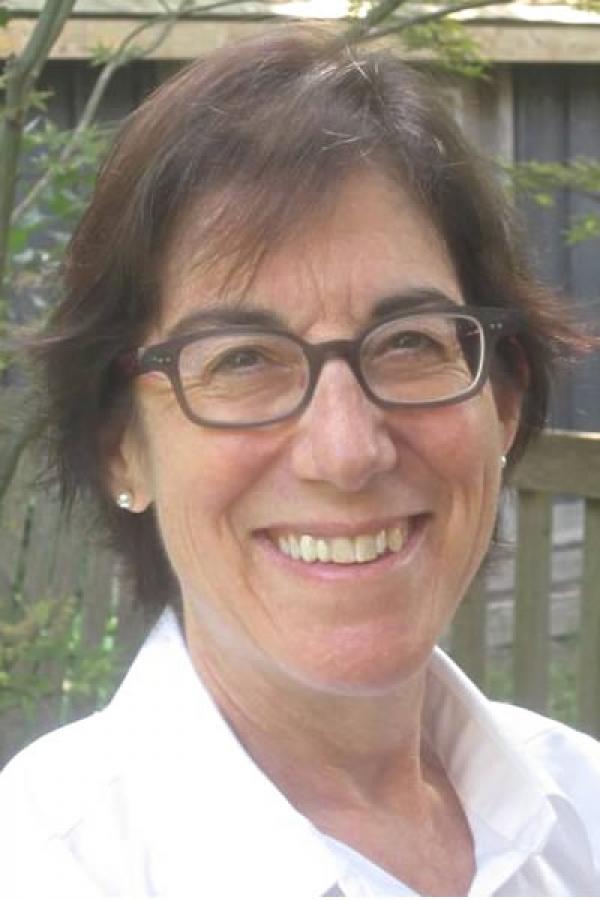Christina E. Kramer

Photo by Richard Franz
Bio
Christina E. Kramer is a professor in the department of Slavic languages and literatures at the University of Toronto, Canada. She teaches Russian and Macedonian and has published numerous articles relating to Balkan linguistics. Her translations include (from the Macedonian) Freud's Sister by Goce Smilevski (Penguin Books, 2012) and My Father's Books and The Time of the Goats by Luan Starova (University of Wisconsin Press, 2012 ). She was also a member of the group of translators of the 19th-century classic (from the Bulgarian) Bai Ganyo by Aleko Konstantinov (University of Wisconsin Press, 2010).
Translator's Statement
In 2000, I began to read My Father's Books, the first volume of the multi-volume Balkan Saga by Luan Starova. The scene of the young narrator destroying antiquities from his father's cherished library haunted me. I began translation of literary works from Macedonian with the first two volumes of the Balkan Saga. My Father's Books and The Time of the Goats were published in 2012 with the University of Wisconsin Press.
Luan Starova is an Albanian from the Republic of Macedonia who writes his works first in Macedonian then translates them into his native Albanian. Each novel is published in both languages. Because my academic work has focused on Balkan comparative linguistics and the social conditions that led to widespread multilingualism, his works hold a special fascination for me; they cross boundaries, seeking to universalize rather than particularize Balkan history. The NEA grant gives me the opportunity to translate the next volume, Pyramid of Water (or The Path of the Eels). I plan to follow the eels back to their source in the waters of Lake Ohrid and then, through translation, back across the ocean to North America, the ultimate, unrealized goal of the Father who dreamt of escape from the turbulent Balkan 20th century.
Excerpt from "Chapter 1" of The Path of Eels by Luan Starova
[translated from the Macedonian]
I stood on the edge of a great cliff that perched like a balcony above the blue eternity of the Lake. Behind me, in Macedonia, stood the Monastery of St. Naum. A proud peacock strutting along its red-tiled roof contributed to the beauty of this holy landscape. My gaze crossed the border marked by an invisible buoy that divided the two countries and reached the nearby shore of Albania.
My eyes settled on my native town, Pogradec, the starting point of our family’s final exodus in that far-off year of 1942, after which we were condemned to belong to a land of no return. According to Mother’s memories, supported by a bundle of keys to abandoned houses that had belonged to our family’s ancestors, the oldest key had belonged to a house on the shores of the Ionian Sea, whose waters lap our native land. The house was at least several centuries old. Also hanging from Mother’s ring of keys were keys belonging to old houses that had disappeared at the time of the great family schism many centuries ago. Here Mother’s recollections ended, and Father picked up the narrative through his struggle to probe ever deeper into our family’s secrets.
For years I searched Father’s books and notes for the starting point of our family’s exodus through the Babel that is the Balkans. I dug deeper into Father’s unfinished project—his attempt to find salvation from Balkan history through study of the collapse of its empires, a history through which our family history was dragged as well— a project now reduced to a pile of papers, yellowed and eaten by time, its meaning faded.
My father had studied most intently the history of the Ottomans in the Balkans and its impact on the fate of our family. There still remained the unsolved family riddle—what had happened during the past five centuries of Ottoman rule in the Balkans? How, after its defeat, did the family schism occur, the change of faith, the splintering of the family? How, after the Ottoman siege and victory, had one part of the family risked its life to cross to the other seashore with its old faith intact, carrying the obligatory ring of keys for unlocking houses now aflame, an icon or two for protection, a holy book in hand. The other part of that same family, of which I too was a distant descendant, remained by the seashore for many generations—as if for all eternity—calling out to its kin on the other shore, hoping fate would one day bring them close again.
About Luan Starova
Luan Starova was born on August 14, 1941, in Pogradec. He left Albania with his family and settled in Skopje (in what was then the Socialist Republic of Macedonia, one of the constituent republics of Yugoslavia), where he completed his BA in languages and literature. He then received both a master's degree and PhD in Zagreb in French and comparative literature. He studied French literature at the Sorbonne. He was a university professor and then served as ambassador of the former Yugoslavia to Tunis and the Palestinian Authority. He later became the first ambassador of the Republic of Macedonia to France, Spain, Portugal, and UNESCO. He is a member of the Macedonian Academy of Arts and Sciences where he now works and writes. He is the author of numerous works, many of which have received awards. The most
well-known of his works is the autobiographical cycle Balkan Saga, of which ten volumes have been published so far.

